
The venture capital (VC) landscape is highly competitive, and staying ahead is essential for success. Efficient and effective management of investment portfolios is critical for VCs to thrive. Traditional methods like spreadsheets and manual reports no longer suffice to handle the complexities of modern VC portfolios. Portfolio management tools have emerged as indispensable solutions, helping firms streamline operations and make data-driven decisions. Read on to discover how to find the best solution for your VC firm.
Productivity and transparency are both critical for a successful venture capital (VC) team. Productivity plays a vital role in enhancing the efficiency of the team, enabling them to accomplish more in a given timeframe. This includes sourcing deals, conducting due diligence, managing portfolio companies, and raising new funds. As the firm grows, a productive team can effectively manage the increased complexity and volume of tasks. Quick identification, assessment, and closure of deals also mean that capital can be deployed faster, thereby accelerating the generation of returns.
On the other hand, transparency is the cornerstone of building trust with various stakeholders such as limited partners, startup founders, and regulatory bodies. It ensures all team members are equipped with the necessary information for informed decision-making. Transparency also facilitates regulatory compliance, as VC firms are required to provide regular updates to their Limited Partners, board members, and regulatory bodies.
In essence, productivity and transparency are not just buzzwords; they are the lifeblood of a VC firm, directly impacting its ability to generate returns and maintain trust. Therefore, tools and practices that enhance these factors can significantly boost the value delivered by VC teams.
Portfolio management tools are solutions designed to assist VCs in managing and optimizing their investment management and portfolio monitoring processes. They offer a range of benefits that can significantly enhance the efficiency and productivity of a VC firm:
1. Streamlined Operations
Portfolio management tools offer a centralized platform to manage all portfolio-related activities. From tracking investments and monitoring performance to reporting and communications, these tools can automate many time-consuming tasks. This not only saves time and reduces operational costs but also minimizes errors and improves accuracy.
2. Enhanced Decision-making
One of the primary benefits of portfolio management tools is their ability to provide detailed and real-time insights into the portfolio’s performance. They can generate in-depth analytics, including risk and return analysis, sector-wise performance, and portfolio benchmarks. This data-driven approach can significantly enhance decision-making, allowing VCs to make informed investment decisions, identify promising opportunities, and mitigate potential risks.
3. Improved Communication and Transparency
Portfolio management tools can significantly improve communication and transparency between VCs and their stakeholders, including Limited Partners and board members. They can generate automated reports, and facilitate instant updates. This increased transparency can enhance trust and foster strong relationships with stakeholders.
4. Scalability
As a VC firm grows and its portfolio expands, managing the portfolio can become increasingly complex and challenging. Portfolio management tools are highly scalable, meaning they can grow with your firm, accommodating an increasing number of investments and more complex data sets. This ensures that your firm is always equipped to manage its portfolio effectively, no matter how large or diverse it becomes.
A good portfolio management tool can help streamline operations, provide real-time insights, and help manage returns effectively. However, not all tools are created equal, and certain key features set apart the best portfolio management tools from the rest:
The ability to efficiently import existing data into the system is essential for any portfolio management tool. Seamless data onboarding ensures a smooth transition from old systems to new ones, minimizing downtime and maintaining the continuity of business operations. The best tools should enable easy data integration that can be initiated and implemented by VC users.

With Rundit, VC team members can import portfolio data via Google Sheets integration or Excel import tool. Additionally, uploading investment data to the platform is simple. See how Google Sheets integration in Rundit works in seconds:
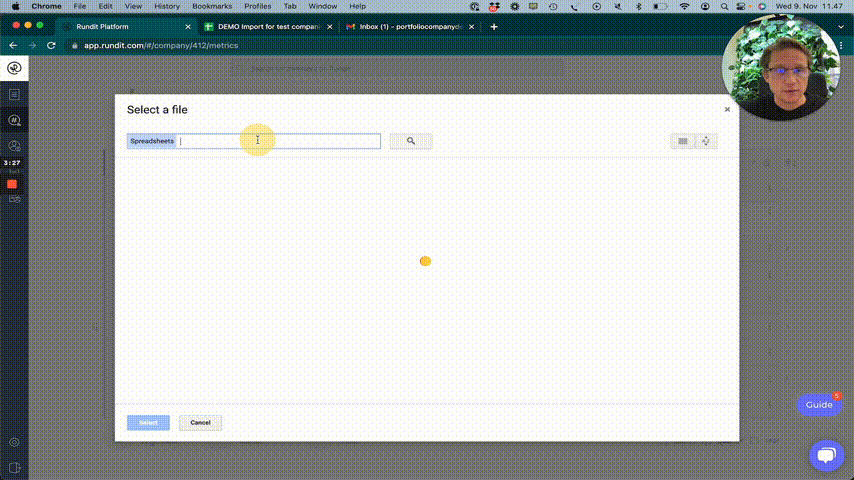
Each investment firm has unique needs and processes. A good portfolio management tool should be highly customizable to accommodate these unique requirements. This includes customizable dashboards, reports, and analytics, as well as the flexibility to adapt to the firm’s workflows and processes. In this regard, Rundit stands out as it places a strong emphasis on customization.
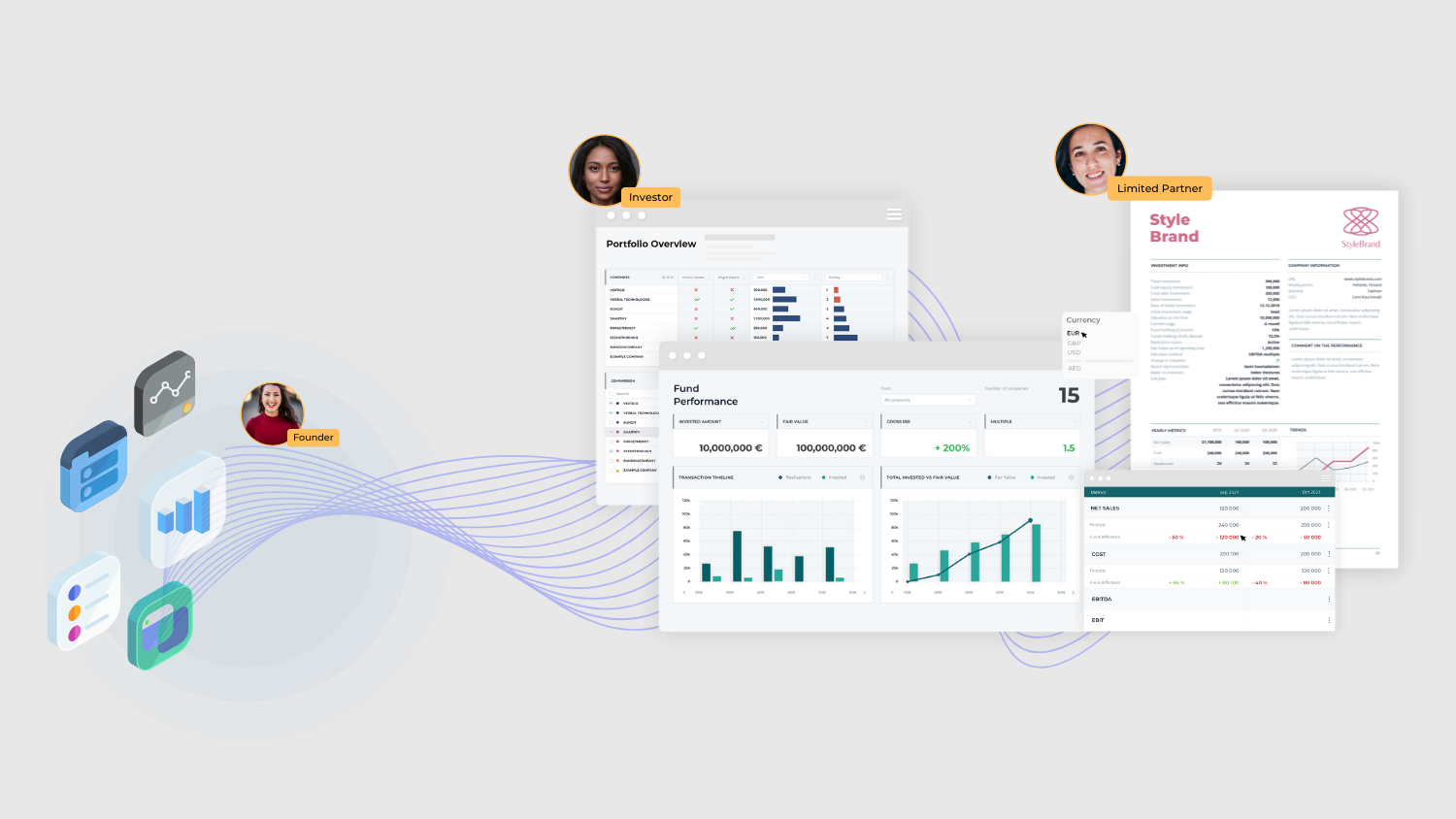
Given the sensitive nature of the information managed by these tools, robust data security measures are non-negotiable. This should include encryption of data both in transit and at rest, access controls, and regular security audits. The tool should also comply with all relevant data protection regulations.
All data stored in the Rundit platform is securely protected through encryption measures. The platform utilizes encrypted storage to persist data, ensuring its confidentiality and integrity. Both the database instances and their backups and snapshots are encrypted, and access to these servers is restricted within a firewall. Moreover, in Rundit, the main users take responsibility for onboarding their own data, eliminating the need to send sensitive information to any audit team. This approach ensures that the data remains intact and under the control of the authorized users throughout the onboarding process.
A good portfolio management tool should facilitate collaboration among team members. This means providing controlled access to multiple users, enabling them to view and edit information based on their roles and permissions. Moreover, it is important to explicitly list activity logs, especially when multiple team members are involved in managing the activities of a particular fund. With the “Activity Log” functionality, Rundit has enhanced transparency within VC teams, promoting efficient teamwork and informed decision-making.
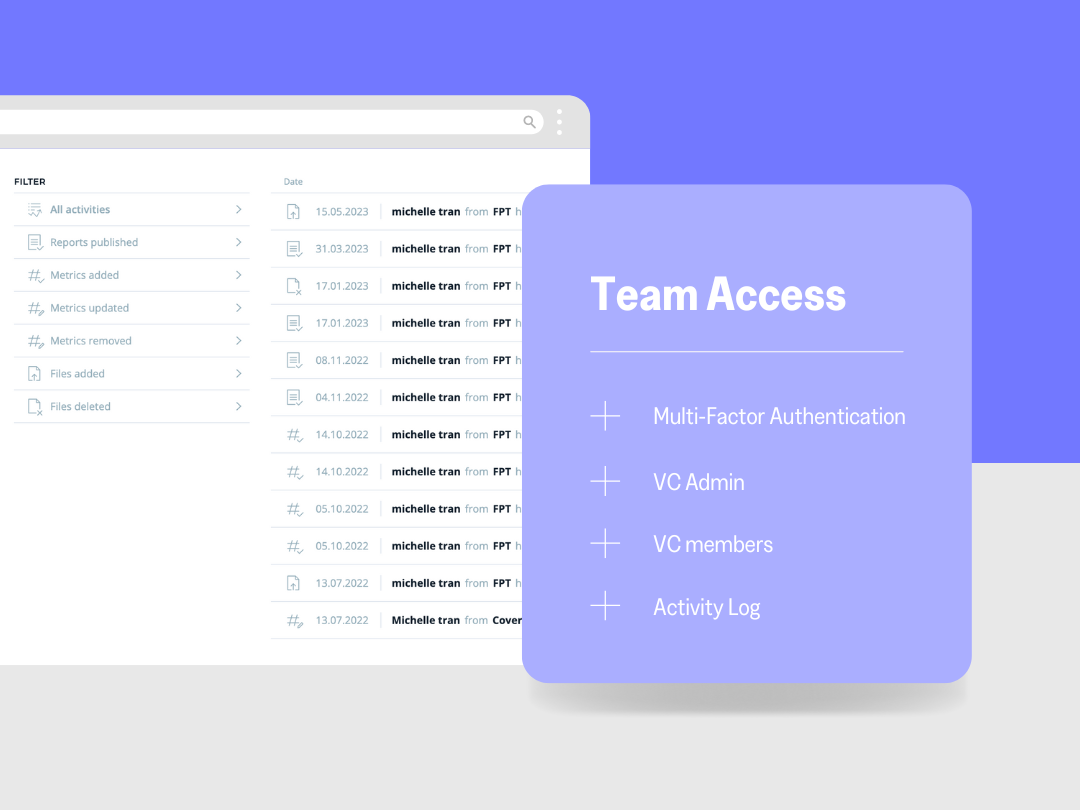
Even the most intuitive and well-designed tools can occasionally present challenges to users. Therefore, reliable customer support is of utmost importance. The best portfolio management tools go beyond just being responsive and offer proactive support to assist users effectively. Rundit, for example, excels in providing exceptional customer service by offering proactive support and a range of helpful resources such as tutorials, use cases, and platform guides. These initiatives contribute to Rundit’s reputation for delivering high-quality customer support and ensuring that users have the necessary assistance to maximize their experience with the platform.
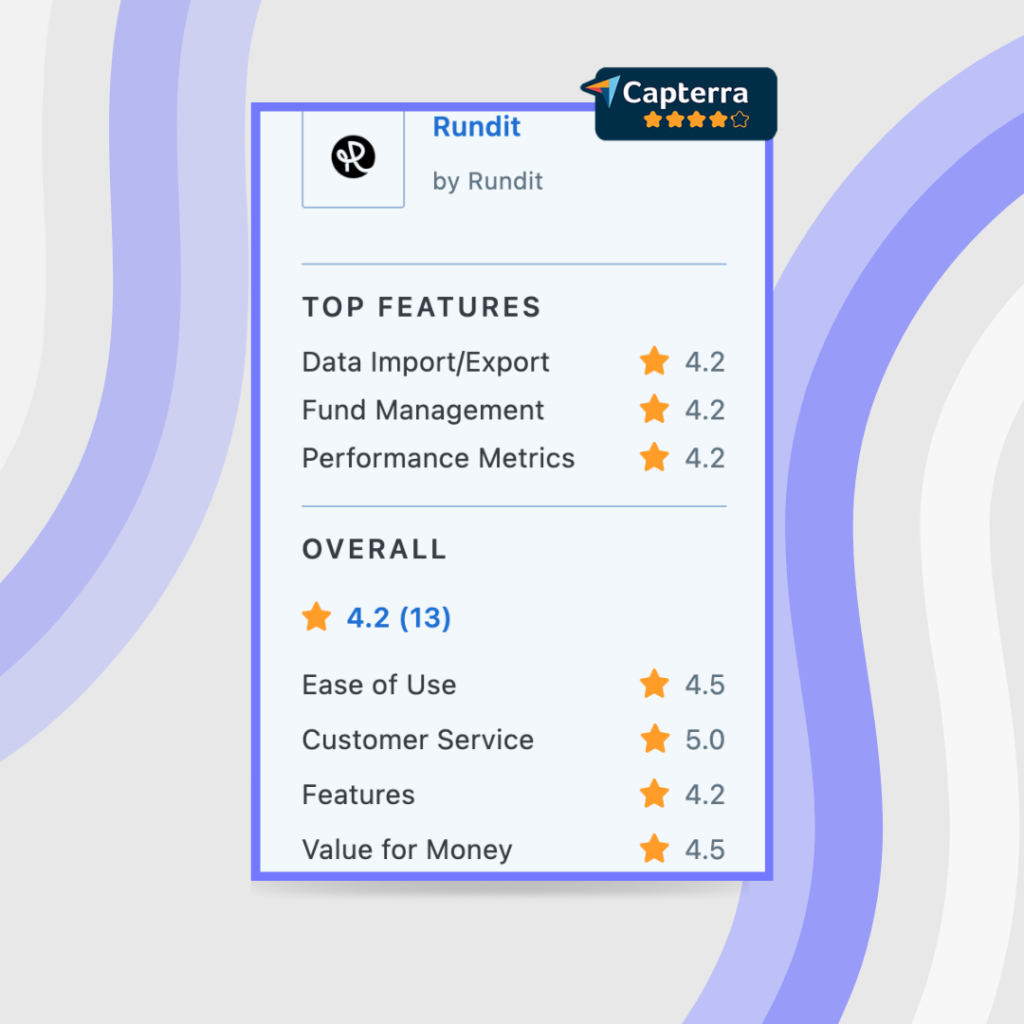
By prioritizing ease of adoption, a good portfolio management tool ensures that portfolio companies can quickly and effectively enhance collaboration and utilize the tools for not only one VC but for all their investors.
Many VCs have adopted Rundit and encouraged founders to report to all their investors and stakeholders. This approach enhances productivity not just within VC teams but also for portfolio teams. However, for VCs who prefer to internally manage portfolio data without inviting founders, Rundit offers that flexibility as well. It allows VCs to effectively manage portfolio data within their own teams without requiring founders to be actively involved in the platform. This adaptability caters to the diverse needs and preferences of VC firms, providing them with the freedom to choose the most suitable approach for their specific requirements.

After going through all the essentials of a portfolio management tool, let’s look at some of the best VC portfolio management tools in the market:
Rundit is a portfolio management and monitoring tool which powers a source of truth that brings all investment and portfolio data together via data integration and provides investors with holistic insights into their portfolio company and investment performance.
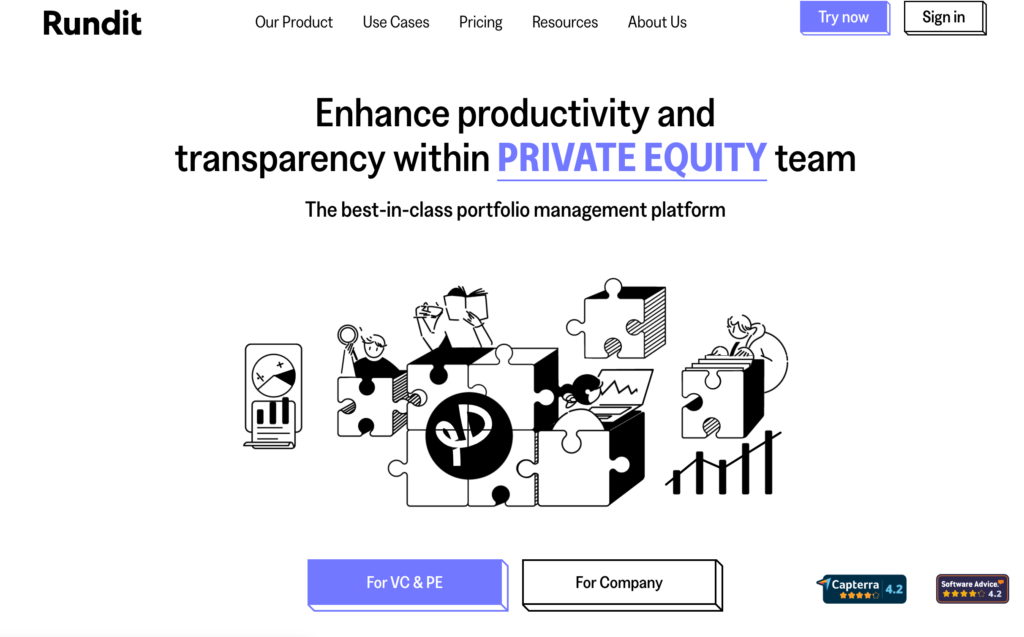
The fund operating system – a platform that institutionalizes fund operations.
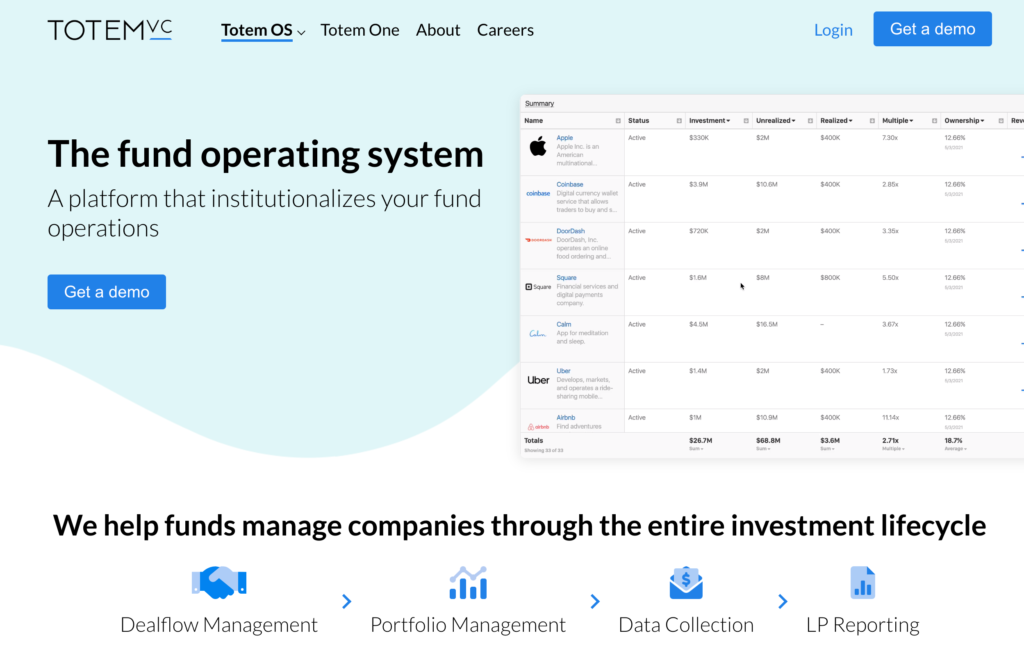
Edda is a collaborative tool for professional investors.
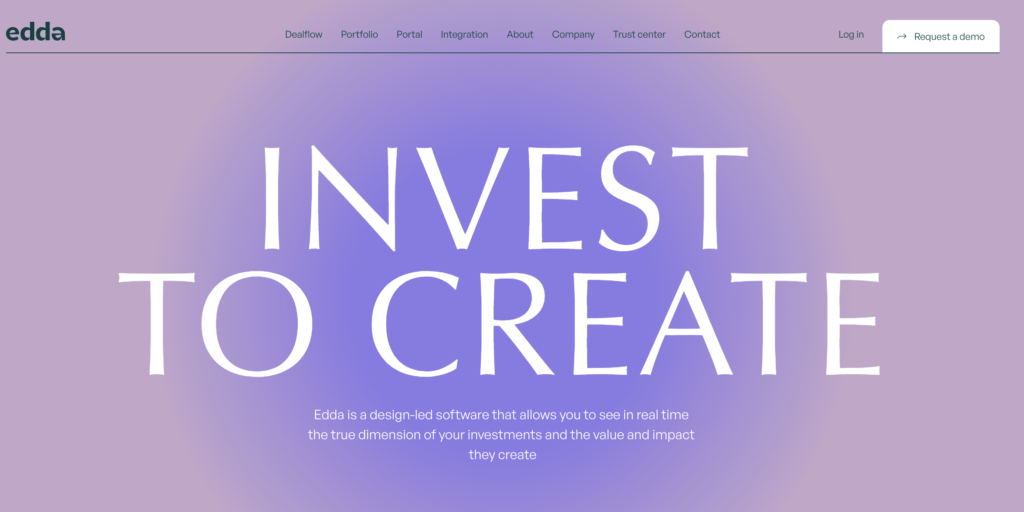
Platform for forecasting, reserve planning and portfolio management.
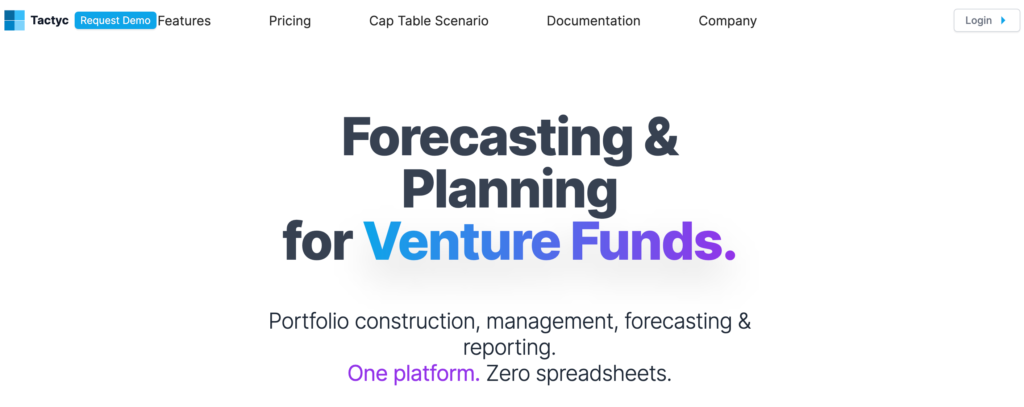
The multi-workflow CRM that covers the entire investment cycle from fundraising to investment management.
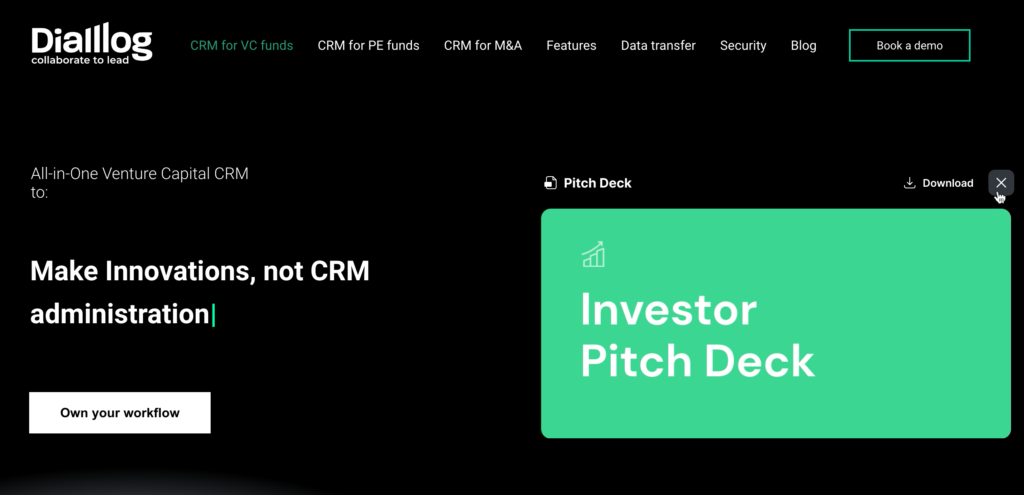
In the evolving world of venture capital, portfolio management tools are no longer a luxury but a necessity. They offer a multitude of benefits, from streamlining operations and enhancing decision-making to improving communication and ensuring reporting requirements. By leveraging these tools, VCs can manage their portfolios more effectively, make informed investment decisions, and drive their firm’s success in the competitive VC landscape.

Get holistic insights and make decisions from a unified data source.
Last updated: 2 April, 2025